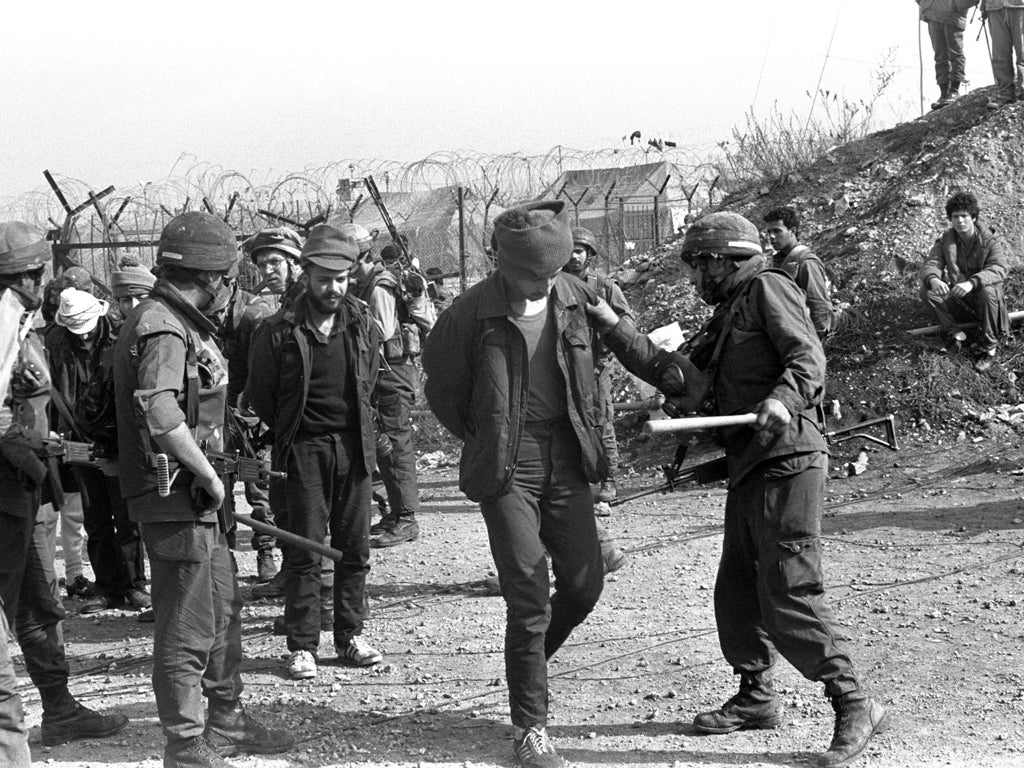An obsessive’s documenting of Israeli war crimes in Lebanon can show us how the West lost respect for international law
One Norwegian officer left Lebanon with a typed report on torture taped to his chest


Odd Karsten Tveit was always a very obsessional chap. Every story he covered, he always wanted to dig deeper, study further, hear one more tale of horror, one more joke, one more historical fact. We all covered the story of Israel’s wars in Lebanon, in 1978, in 1982, in 1996, in 2006. Over the years, I covered the story of Israel’s torturers in Khiam jail in southern Lebanon, the massive Ansar prison camp in 1982, the frightful interrogation of Lebanese and Palestinian inmates.
But Karsten has put together a book of immense research which will remain the volume on Israel’s shame in Lebanon and its historical defeat. That’s the title of the English edition – Goodbye Lebanon: Israel’s First Defeat. His detailed questioning of torture victims – hanged by their arms, electrocuted, in one case apparently raped and in another mistreated in an Israeli hospital – have an unstoppable power to convince. Not only did he cover the events on the ground in southern Lebanon, he interviewed Israeli veterans in Israel itself.
He reported constantly on Norwegian television and radio; he wanted to learn so much of the vicious Israeli-Hezbollah guerrilla war that he actually took time off to serve in the Norwegian UN battalion n southern Lebanon, wearing the blue beret. Now that is obsession for you.
It is a terrible tale, stories which upset many of the UN peacekeepers, especially military doctors, as evidence mounted of the Israeli brutality on prisoners in Lebanon and inside Israel itself. One Norwegian officer even left Lebanon via Tel Aviv with a typed report on torture taped to his chest for the eyes of a Norwegian government minister.
Prisoners at Ansar were grossly mistreated. Outside the walls of Khiam prison, I visited a post of UN unarmed truth supervisors who told me they could hear the screams of tortured men and women at night. Karsten did the same. Israeli interrogators were present, Karsten says. Israel denied responsibility, saying Khiam was under the control of their local Lebanese militia. The UN did not believe it.
There are also stories of great courage. Two out of the four men who managed to escape from Khiam were hunted through the night and only reached Beirut with the secret help of UN soldiers. They had been inspired by Allied escapes from prison camps in the Second World War. “The prisoners in Stalag III had managed to get hold of equipment by bribing a German guard,” Karsten writes. “In Khiam, such an attempt would likely have meant more torture and confinement in the ‘chicken cage’, the 90-cubic-centimetre enclosure used for extra-severe punishment.”
It was only thanks to an Israeli lawyer that Lebanese prisoners held in Israel – illegally under international law – managed to have their cases heard. Many were held for years without trial, as they were in Khiam, naked during interrogations, refused visits from the International Red Cross, wounds untended or untreated for days.
And I wondered, reading this shameful narrative, why we were so surprised when we found that the American military were torturing and killing prisoners in Iraq and Afghanistan. Karsten says at one point that Israeli soldiers in the occupation zone in southern Lebanon – the Israelis called it a ‘security zone’, a description that many newspapers gutlessly repeated – were joint Israeli-American nationals. Did any of them also serve in the American army in Iraq?
The mass prison camp at Ansar sounds like a hot version of Guantanamo. And when the US repeatedly vetoed UN Security Council resolutions condemning Israel’s treatment of Lebanese civilians, I wonder whether somehow that’s when American governments lost their respect for international law – as they showed in their treatment of prisoners in Iraq and Afghanistan (or the Iraqi invasion itself).
There are painful details of the torment of Western hostages in Lebanon and the merciless judgements bestowed on informers by Hezbollah. There are not many good guys in Karsten’s reporting. In the end, it turned out that the prisoners of the Israelis were hostages too – the Israelis called them “bargaining chips”, another phrase the press used freely – and they were freed to secure the release of Israeli prisoners or their bodies.
Khiam is long gone. The war in Lebanon is now outclassed by the bloodbath in Syria. Karsten’s work is a reminder that cruelty has no geographic boundaries. How much more is there to learn about the horrors of Lebanon? Or Afghanistan? Or Iraq? Or Syria?
Parallels with Ireland not so clear
I see that Mustafa Barghouti, the leader of the Palestinian National Initiative – which holds no truck with either Hamas or the Palestinian Authority – has been holding forth in Dublin about the parallels of Irish and Palestinian history. “I find great similarity between the struggle of Irish people and the Palestinian struggle for independence and freedom,” he says. That deserved one response: Hmmm.
Visiting Kilmainham jail, he told the Irish Times that he intended to read more about Robert Emmett, executed for a hopeless rising in 1803. “We were also colonised by the British colonial system,” said Barghouti (pictured). “My grandfather and uncle were imprisoned in similar prisons.” Now, he says, the Netanyahu government is “bulldozing the two-state solution and the possibility of a Palestinian state”.
Barghouti wants Ireland’s political help, claiming that without “international solidarity” for a peaceful solution, the Palestinians will not have a state. But I’m not sure Barghouti has chosen quite the right period of Irish history. I would have thought the dispossession of the Catholics and the Protestant settlement in the Pale was a more likely parallel with Netanyahu’s colonial expansion. Getting rid of the Penal Laws wasn’t much of a prospect at the time. Catholics couldn’t even buy land. And “international solidarity” with the Irish wasn’t much use then.